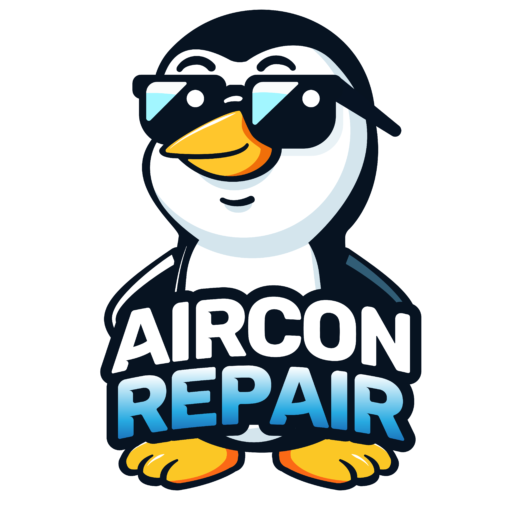Commercial HVAC systems are essential for maintaining comfortable indoor environments in offices, retail spaces, industrial facilities, and other commercial properties. Proper maintenance not only ensures energy efficiency but also extends the lifespan of the system, reduces unexpected breakdowns, and improves indoor air quality. Neglecting HVAC maintenance can lead to higher operational costs, frequent repairs, and an uncomfortable environment for employees and customers.
This guide covers essential maintenance strategies to keep your commercial HVAC system running at peak performance and maximize efficiency.
1. Establish a Preventive Maintenance Plan
A well-structured preventive maintenance plan helps to avoid unexpected failures and reduces costly repairs. The plan should include regular inspections, cleaning, and necessary component replacements. Preventive maintenance should be scheduled at least quarterly, with specific tasks performed on a monthly, seasonal, and annual basis.
Key Preventive Maintenance Tasks:
- Filter Replacement: Dirty filters restrict airflow and reduce efficiency. Replace or clean filters every 1-3 months.
- Coil Cleaning: Evaporator and condenser coils accumulate dirt and debris over time, reducing heat exchange efficiency. Regular cleaning ensures optimal performance.
- Belt and Motor Inspections: Check belts for wear and tear, and lubricate motors to prevent friction-related damage.
- Drain Line Cleaning: Clogged drain lines can cause water leaks and mold growth. Inspect and clean them regularly.
- Thermostat Calibration: Ensure thermostats are accurately reading and controlling temperature settings to avoid energy wastage.
2. Monitor Energy Consumption
Tracking energy usage can help identify inefficiencies in your HVAC system. Sudden spikes in energy bills may indicate underlying issues such as refrigerant leaks, duct leaks, or failing components.
Steps to Monitor Energy Efficiency:
- Install energy monitoring systems to track consumption trends.
- Compare monthly energy bills to historical data to detect inefficiencies.
- Conduct periodic HVAC performance assessments to identify areas for improvement.
3. Ensure Proper Airflow and Ventilation
Restricted airflow can overwork HVAC systems, leading to higher energy consumption and increased wear on components.
Ways to Improve Airflow:
- Keep vents and registers clear of obstructions like furniture or decorations.
- Regularly inspect and clean air ducts to prevent dust buildup and blockages.
- Adjust damper settings to balance airflow throughout the building.
- Consider upgrading to variable air volume (VAV) systems for better airflow control.
4. Schedule Professional HVAC Inspections
Even with routine maintenance, professional inspections are necessary to catch issues that may go unnoticed. A licensed HVAC technician can perform detailed diagnostics, efficiency tests, and necessary adjustments to keep your system running efficiently.
Benefits of Professional HVAC Inspections:
- Early detection of refrigerant leaks, worn-out components, and electrical issues.
- Calibration of HVAC sensors and controls for accurate performance.
- Identification of potential energy-saving opportunities, such as system upgrades or insulation improvements.
5. Optimize HVAC Controls and Automation
Upgrading to smart HVAC controls can significantly improve efficiency by adjusting heating, cooling, and ventilation based on occupancy and usage patterns.
Smart HVAC Optimization Tips:
- Install programmable thermostats to automatically adjust temperatures during off-peak hours.
- Use occupancy sensors to regulate heating and cooling in unused spaces.
- Integrate building automation systems (BAS) for centralized HVAC management.
- Adjust temperature settings based on seasonal demand to avoid unnecessary energy use.
6. Maintain Refrigerant Levels
Refrigerant is crucial for effective cooling in HVAC systems. Low refrigerant levels can lead to poor cooling performance and increased energy consumption.
Refrigerant Maintenance Best Practices:
- Regularly check refrigerant levels and refill as needed.
- Inspect for leaks and repair any detected issues.
- Ensure refrigerant lines are properly insulated to prevent heat loss.
7. Upgrade Outdated HVAC Components
Old or inefficient HVAC components can drain energy and lead to higher maintenance costs. Consider upgrading to modern, energy-efficient equipment to improve system performance.
Potential HVAC Upgrades:
- High-efficiency compressors and motors.
- Energy-efficient air handlers and fans.
- Advanced filtration systems for improved air quality.
- Eco-friendly refrigerants to reduce environmental impact.
8. Protect the HVAC System from External Elements
External factors such as dirt, weather, and debris can impact the efficiency of an HVAC system. Proper protection measures ensure longevity and performance.
Ways to Protect the HVAC System:
- Install weatherproof covers for outdoor HVAC units.
- Clean surrounding areas to prevent debris buildup.
- Ensure proper insulation to maintain consistent indoor temperatures.
- Protect HVAC components from direct sunlight to prevent overheating.
9. Train Facility Staff on HVAC Maintenance Practices
Educating facility staff on basic HVAC maintenance can help prevent minor issues from escalating into costly repairs.
Training Essentials:
- Recognizing early signs of HVAC problems (e.g., unusual noises, poor airflow, temperature inconsistencies).
- How to change filters and perform basic cleaning tasks.
- Proper usage of thermostat and HVAC controls.
- When to call for professional HVAC servicing.
10. Conduct Seasonal HVAC Maintenance
Different seasons pose varying demands on HVAC systems. Preparing your HVAC system for seasonal changes ensures uninterrupted efficiency.
Seasonal Maintenance Checklist:
- Spring/Summer: Check refrigerant levels, inspect for leaks, and clean condenser coils.
- Fall/Winter: Test heating elements, check heat exchangers, and inspect insulation for energy efficiency.
- Year-Round: Maintain humidity levels and indoor air quality with proper ventilation and dehumidifiers if necessary.
Conclusion
Proper maintenance of commercial HVAC systems is essential for maximizing efficiency, reducing operational costs, and extending the system’s lifespan. By implementing a preventive maintenance plan, monitoring energy consumption, ensuring proper airflow, and upgrading outdated components, businesses can create a comfortable and energy-efficient environment.
Regular professional inspections, staff training, and seasonal maintenance further enhance HVAC performance. Investing in HVAC efficiency not only lowers utility bills but also improves indoor air quality and productivity in commercial spaces. A well-maintained HVAC system is a long-term asset that ensures reliability, sustainability, and cost savings for any business.
By following this ultimate guide, you can keep your commercial HVAC system running smoothly and efficiently for years to come.
